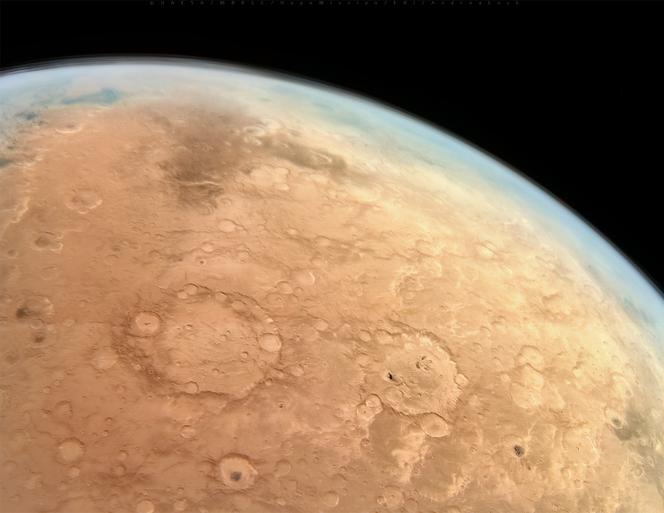


Mars specialists had speculated about the existence of this phenomenon for several decades. Expectations for the study led by Shannon Curry, a researcher at the University of Colorado, were therefore high. After accumulating and analyzing more than nine years of data from the Maven probe, which has orbited Mars since 2014, Curry and her team were able for the first time to demonstrate an atmospheric escape process known as "sputtering." This process could explain how Mars lost its atmosphere several billion years ago.
What "atmospheric sputtering" does to Mars:

Sources: CNES, ESA
Le Monde infographics
The study, published in the journal Science on May 29, helps to further reconstruct the turbulent history of the Red Planet, especially its early years, which continue to intrigue scientists. Mars was not always the cold, desert-like, reddish planet we know today. Examination of its surface indicates the past presence of liquid water, implying much higher temperatures than today's average of -63°C, as well as a much denser atmospheric layer than the current one, whose pressure is only 0.6% that of Earth's.
You have 83.26% of this article left to read. The rest is for subscribers only.
